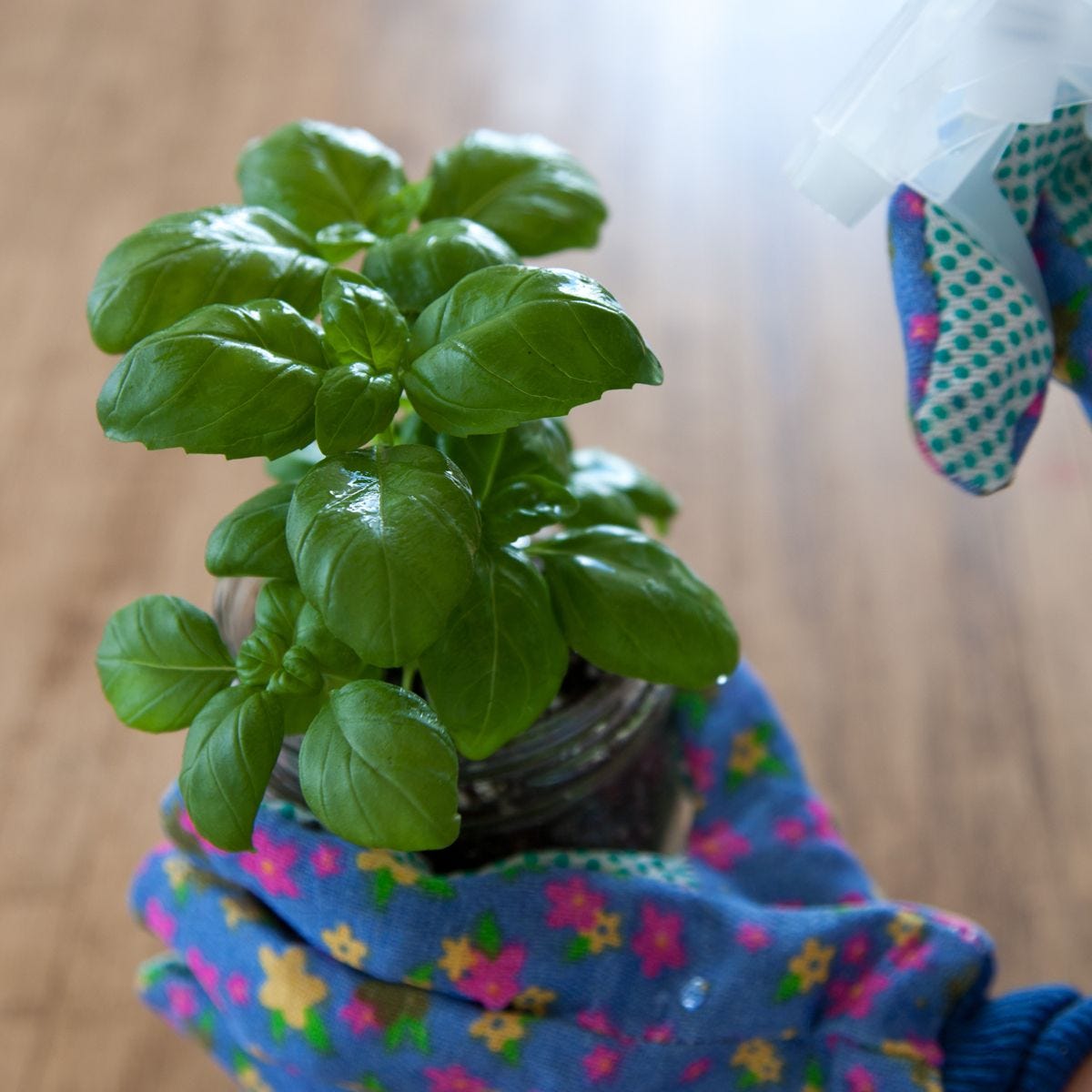DIY Herb Care Kit: Grow Basil, Thyme, and Rosemary in Mason Jars
Add flavor and freshness to your meals by growing herbs right in the great indoors. They're chock full of vitamins and antioxidants and have a multitude of antibacterial and anti-inflammatory benefits. What's more, they're easy to grow and add a little color to your kitchen. In this How-To, we're breaking ground by showing you how to use Mason jars to grow Basil, Thyme, and Rosemary.
Store bought herbs can be expensive, around $2.80 for a small container. But with reCAP’s Mason Jar Herb Growing Kit, you can grow your own. Choose organic plants or seeds and use reCAP’s all-natural system and instructions. In this way, you also don't have to worry about what fertilizers or insecticides were used.
Some easy-to-grow and commonly used herbs include rosemary, basil, and thyme. In the summer months, mint and cilantro are handy to have around as well.
In addition to the health benefits, herbs can add some color to your kitchen and smell quite pleasant. Some herbs like rosemary have a sweet cedar-like scent and are great for freshening up your house.
You can pick them and use them immediately or dry and store them.
Here are some ideas:
-
Add fresh basil to salads, pasta, or sliced tomatoes (add some balsamic too)
-
Throw fresh basil, thyme, or oregano in scrambled eggs
-
Add to soups, stews, and sauces
-
Top your sandwich with fresh Basil (so good!)
-
Make pesto
-
Top your tacos with fresh cilantro
-
Add mint or basil to smoothies
-
Add chopped herbs to whole grains
-
Add fresh dill on salmon
The reCAP Solution:
Mason Jars DIY Kit: Growing Herbs
1. WATERING:
POUR lid + ADAPTA Sprayer
Containers dry out more quickly than garden beds, especially when the herbs are set outside where the sun and wind are hitting them. Most indoor plants require watering every two to three days, or when the top inch of soil feels dry.
Outdoor pots may require irrigation as often as once a day, or even up to twice a day during hot weather. Check the soil conditions daily to ensure the correct amount of moisture.
Different herbs also have differing water needs. For instance, basil grows best in moist soil while lavender and sage prefer drier soil. For this reason, always reference the plant care tag before watering.
2. Harvesting:
A jelly Mason jar, reCAP FLIP, and shaker screen
Store and serve dried herbs easily with the reCAP FLIP lid and jelly jar. See the video for an example!
3. DIY Pest Control
Adapta Sprayer - Make your own chemical-free pesticides with Neem oil.
Neem oil is a powerful, all-natural, plant-based solution that can help ward off pests. In fact, neem juice is the most powerful natural pesticide on the planet, holding over 50 natural insecticides. Accordingly, you can make an effective pesticide using this extremely bitter tree leaf.
To make your own neem oil spray, add 1/2 an ounce of high-quality organic neem oil and ½ teaspoon of a mild organic liquid soap (I use Dr. Bronners Peppermint) to 2 quarts of warm water. Stir slowly. Add to a Mason jar with the Adapta Sprayer and use immediately.
Here are some tips to keep your plants in good shape:
-
Don’t overcrowd. Keep only a few plants per window, leaving ample space between so they don’t compete for sunlight.
-
Make sure the pot (or jar!) is big enough for the plant. If your pot is too small, the roots will struggle to grow.
-
Proper drainage. Make sure your pot has drainage, so the plant isn’t sitting in water. If your pot has a saucer on the bottom make sure it doesn’t sit in standing water collected at the bottom. If you have no saucer, place small stones at the bottom to keep the plant away from standing water.
-
Don’t over-water. Read the instructions on each plant; some need more water than others. Water until the plant is lightly moist all the way down (put your finger in the soil to feel if it’s dry at the bottom), not soaking. If you develop large gnats chances are you’ve got too much moisture.
-
Don’t under water. If your plant is getting droopy, it needs a little water.
-
Plenty of light. While all plants vary, most herbs need direct sunlight so place plants next to a sunny window. Southern exposure is preferable.
-
Keep on trimming. Trim your plant from the top regularly so it continues to grow. Hopefully, you’ll be using the herbs regularly in your cooking, so this won’t be an issue. Even if you have smaller leaves at the top of a plant like basil, trim off the top layer. This pruning will force the plant to grow more like a bush rather than a long stalk.

